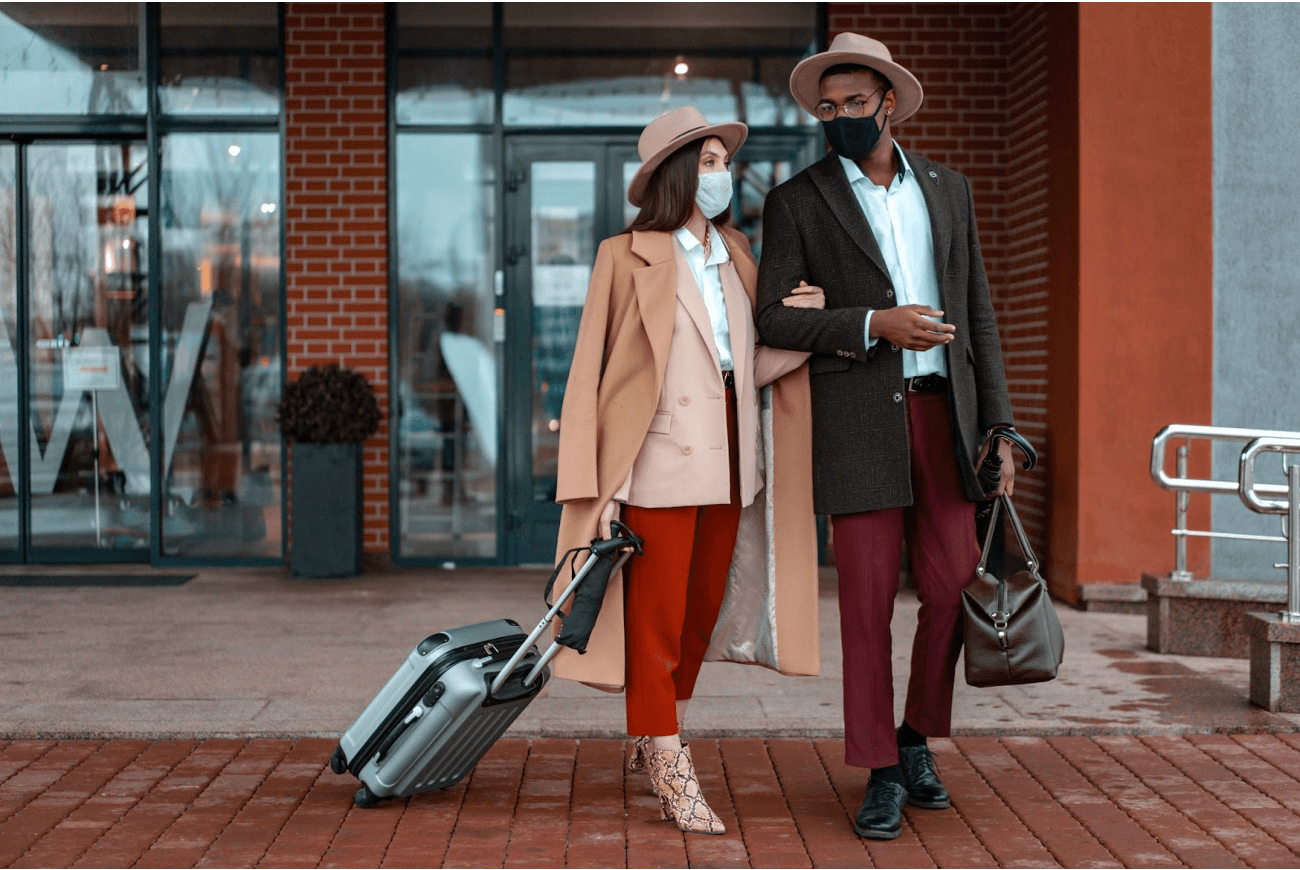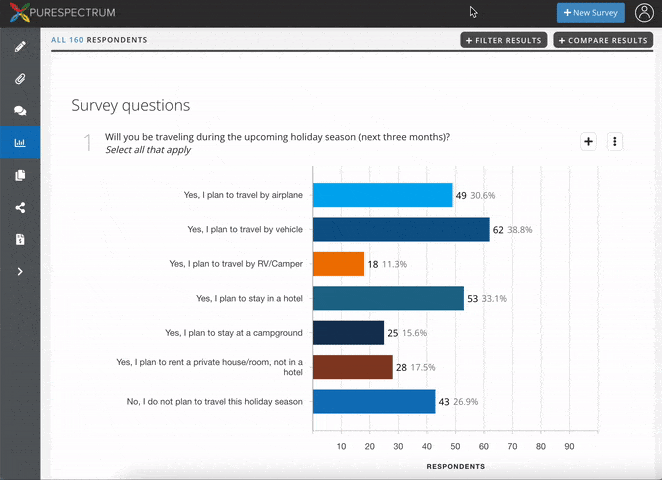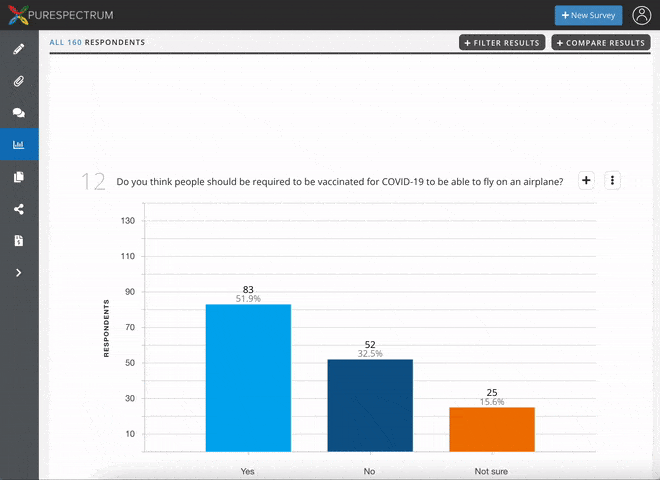
With the holiday season quickly approaching, we wondered how Americans are feeling about travel and if their sentiments differ depending on vaccination status? Using the PureSpectrum Insights Platform, we polled Americans to see if and how they are planning to travel in the next three months. Consistent with recently published reports, 70% of our respondents for this survey confirmed being at least partially vaccinated against COVID-19.
Sentiments Around Air Travel and Lodging
Vaccinated or not, 73% of Americans are planning to travel within the next three months though only 31% plan to go via airplane. 53% of those planning holiday trips have already booked travel arrangements. Interestingly, travel plans do not seem to differ too much when filtering by vaccination status as shown on the PureSpectrum Insights Platform.

Source: PureSpectrum Insights Platform
With a minority of holiday travelers going by plane, we wondered what is keeping people from the friendly skies? 28% of our respondents report feeling at least “somewhat uncomfortable” traveling via airplane. Rather than the concern over getting sick, it may be an indirect impact of COVID-19 lockdowns that is causing uncertainty. 34% of travelers say that it’s the increase in flight cancelations that is causing them to worry about air travel.
International regulations and vaccination policies may also be confusing passengers. Only 26% of respondents said they plan to travel internationally in the next three months. This number sharply declines when filtering by vaccination status. Only 17% of unvaccinated Americans are planning to travel out of the US in the next three months.
American sentiments are similar surrounding hotel stays. 22% of travelers report feeling at least “somewhat uncomfortable” staying in one. Similarly, a quarter of respondents also feel uncomfortable renting a house or a room on a website like Airbnb or VRBO. But like air travelers, it’s not just COVID-19 that makes lodgers nervous. Experience and quality of stay may be driving these sentiments with 38% of travelers report also being concerned about staffing shortages in the hospitality industry.
Masks and Vaccination Requirements?
So is there anything that the travel industry can do to assuage current travel fears? 54% of respondents think that airlines are currently taking enough precautions to protect travelers from COVID-19. And almost 60% of travelers feel that hotels are doing enough. Mask requirements seem to be working and travelers are becoming accustomed to wearing them. 81% of travelers feel neutral or better about wearing masks on planes. Does this mean even stricter policies need to be enacted to help fearful travelers?
52% of people currently think that vaccinations should be mandatory to fly in a commercial plane. This number increases and decreases when filtering by vaccination status. Interestingly though, 30% of unvaccinated travelers do think vaccines should be required for air travel and 14% aren’t sure.

Source: PureSpectrum Insights Platform
44% of travelers think that vaccinations should be required for hotel stays. This number drops drastically to 15% when again filtering to unvaccinated respondents.
Looking Ahead
It’s clear that travelers have a lot on their minds as they enter this holiday season. Clear communication about COVID-19 policies, staffing shortages, and impending delays will continue to be needed and reiterated. Travelers are eager to better understand what the hospitality and travel industry is doing to protect their safety and provide a hassle-free travel experience/journey.
Curious to dive deeper into our data set? Email us at marketing@purespectrum.com
Want to learn more about running your own survey? See how easy it is on our Insights Platform.
Methodology
PureSpectrum interviewed 155 online respondents on October 15, 2021, using the PureSpectrum Insights Platform. The platform is integrated with the PureSpectrum Marketplace which combines proprietary measurement tools and third-party data validation to quickly collect high-quality insights. The study fielded in less than an hour, targeted people within the United States, and consisted of a general population audience of 18+ years old. This study uses a 95% confidence level to examine the data.
